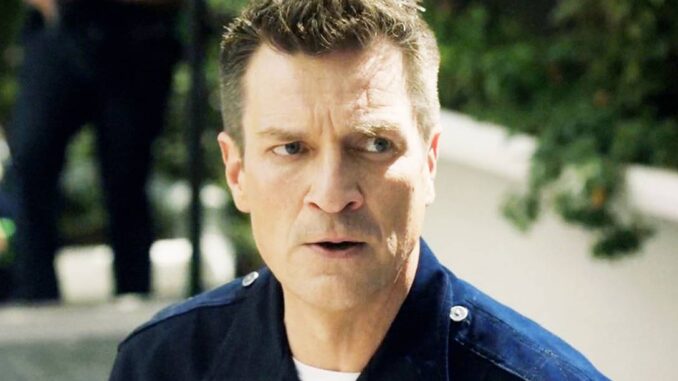
The air in the Grand Palladium was a living thing, thick with anticipation, humming with the collective breath of thousands. Seven years. Seven years since Anya had first burst onto the scene, a supernova of talent and an enigma wrapped in silk and starlight. Her voice, a crystalline river carving its way through the landscape of pop, had conquered charts, hearts, and the very concept of silence itself. Yet, for all her ubiquitous presence, there remained a chasm, a whispered question that echoed in the fan forums and hushed backstage conversations: What was the truth about the beginning?
Tonight, that chasm was about to be bridged.
Anya emerged, not in her usual theatrical cascade of glitter, but in a simple, shimmering gown that seemed to absorb the light rather than reflect it. Her famously impenetrable gaze, usually an exquisite blend of vulnerability and defiance, held a new, fragile transparency. She opened with "Stardust Symphony," the very song that had launched her, its familiar melody twisting through the air like a phantom limb. Every note was perfect, every inflection precise, yet something was profoundly different. The usual soaring power was undercut by a profound ache, a resonance that hadn't been there before. It was as if the song, once a declaration, was now a lament.
Midway through the second verse, as the strings swelled to meet her, Anya stopped. The music, a well-oiled machine of sound, sputtered, then died. A gasp rippled through the audience, a collective inhalation so sharp it felt like a physical shock. The stage lights, usually dynamic and choreographed, froze her in a stark, almost accusatory spotlight. She stood there, microphone clutched in hands that trembled faintly, her eyes scanning the sea of faces, not seeking adoration, but something akin to understanding.
"Seven years," her voice, stripped of its usual reverb and polish, was a whisper that nonetheless filled the vast hall. "Seven years I've carried a silence. A carefully constructed wall between the woman you see and the girl who first sang this song." She paused, took a ragged breath that was amplified, echoing the vulnerability of her confession. "You've called me resilient. You've called me a survivor. You've called me a star. And I've accepted those labels, because it was easier than revealing the truth."
The silence that followed was absolute, heavier than any music. It wasn't just the absence of sound; it was the presence of a thousand suspended heartbeats, a shared breath held in deference.
"This song," she continued, her gaze falling upon the microphone as if it were a fragile artifact, "was not written by me alone. It was born of a shared dream, a shared voice, with someone I lost just before the world found me." Her voice cracked, a tiny fissure in the carefully constructed facade. "My sister, Elara. My twin. She was the melody, I was the harmony. We wrote 'Stardust Symphony' together, a promise to reach for the stars, no matter how distant."
A collective gasp, this one softer, more sympathetic, rippled through the crowd. The whispers started, not of malice, but of recognition, of a puzzle piece finally slotting into place. The melancholic undertone in Anya's early work, the sudden rise from obscurity, the fierce protection of her private life – it all began to make a devastating kind of sense.
"When she… when she left," Anya forced the words out, a tremor running through her frame, "I was shattered. But she left me with a final instruction: 'Sing for both of us, Anya. Don't let our song die.' And so I did. I sang, not as Anya, but as a vessel for both our dreams. I let the world believe it was my solitary genius, my singular struggle, because the truth felt too raw, too sacred to share. It felt like I would be betraying her memory by exposing our shared grief to the harsh glare of celebrity."
Tears streamed down her face now, not the performative kind, but genuine, cleansing tears that carved paths through her makeup. "But the silence has become a heavier burden than the truth. Every time I sang 'Stardust Symphony,' a part of me died inside, knowing I was living a half-truth, denying Elara her rightful place in its genesis. You, my fans, deserved more than a polished lie. You deserved the real source of the starlight you saw."
She lifted her head, her eyes, though red-rimmed, now held a newfound light, an unburdened clarity. "Tonight, I sing not just as Anya, but as Anya and Elara. This song is for her, and it's for you, for waiting with such patience, and for loving a star who was, for too long, shining with borrowed light."
She nodded to the band, her fingers finding the start of "Stardust Symphony" on her guitar. This time, the notes were not just perfect; they were raw, vibrant, infused with a poignant honesty that vibrated through every seat in the Palladium. The familiar lyrics, once a mystery, now pulsed with a profound, shared grief and an unyielding love. The audience didn't just listen; they absorbed, they wept, they understood.
In that moment, Anya wasn't just a rising star; she was a comet, trailing a luminous, honest truth behind her. The seven-year silence had ended, not with a bang, but with the quiet, profound sound of a soul finally singing its true, unburdened song. And the fans, who had waited so long, found that the truth, however heartbreaking, was more beautiful, more powerful, than any carefully constructed fantasy. It wasn't just Anya's liberation; it was theirs too, a testament to the enduring power of vulnerability and the transformative magic of an unvarnished song.